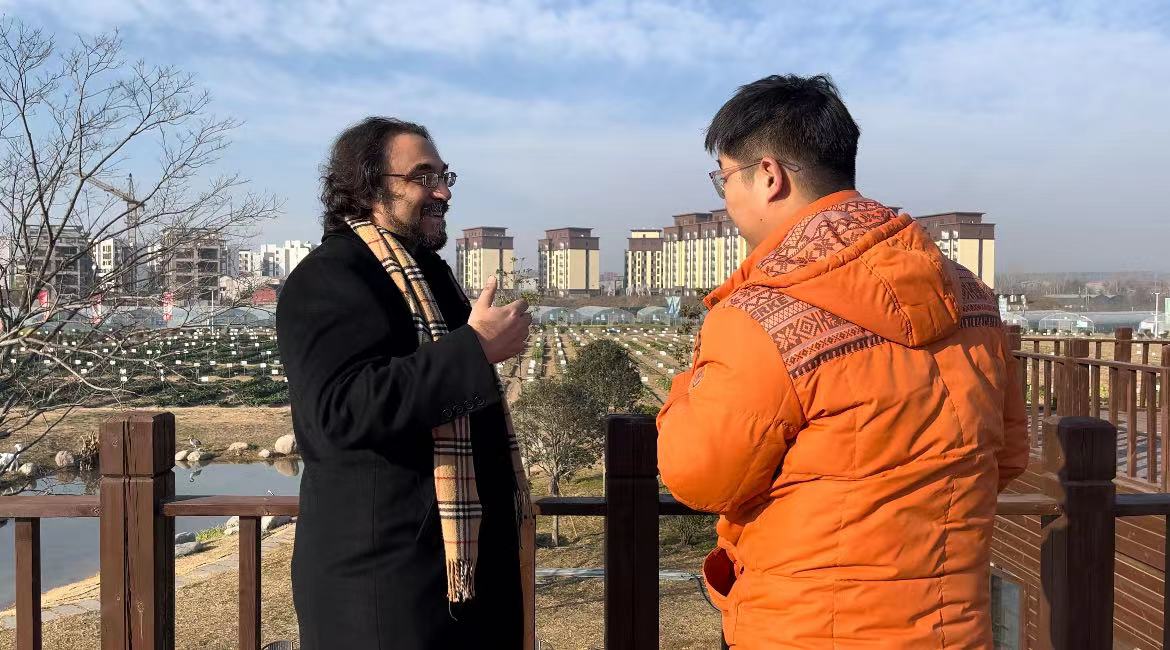Government-led Environmental Protection Effective

S&T?Daily?reporter?talks?to?Makram?El-Shagi?in?Zhengzhou,?Henan.?(Photo:WANG?Xiaolong?/?S&T?Daily)
By?LIN?Yuchen?&?WANG?Xiaolong
Makram El-Shagi, a German economist working at Henan University, has lived in Kaifeng, Henan province for around 10 years. Captivated by Chinese culture, he chose to leave Germany and come to China and brought his wife as well as his two daughters along, both of whom are now studying in a local public school.
El-Shagi recently shared his thoughts on the changes he has seen in China over a decade with Science and Technology Daily. He also contrasted the differences between China and Germany, especially in terms of environmental protection.
First and foremost, for El-Shagi, China's political system may appear complicated, "But when it matters, it's not like in Germany, [where] if you want to do something new and big, it takes years to get approval and to get it done. We took like 20 years to build an airport. But when China says, we need an airport, one year later you will have an airport," he said.
He showed his approval of the high efficiency of China's political system, highlighting the fact that the central government's instructions can be fully implemented in China. "The lower levels of administration fall in line relatively quickly," he said, adding that this can be different in Germany, where all the various parts of government seem to fight against each other so nothing gets done.
Reflecting on China's efforts in improving air quality, El-Shagi said there has been a big improvement.
"I think China has been a driving power behind the change to a green or greener economy. And as you see, it's December now and when we [first] moved to China in December ten years ago, you couldn't really see the sun. [This happened] basically, from the time the [internal] heating period began in November to March. Now, smog is not a major problem anymore," he said.
In contrast to environmental protection in the U.S., El-Shagi said a friend who lived in Los Angeles told him that after almost 20 years living there, he just recently began to realize that it's even possible to see the mountains from Los Angeles. "That's because there was just so much dust and pollution all year round, and you could not see the mountains clearly. Now you typically can see them on a clear day," he relayed what his friend said.
He held positive views towards China's future development. However, he believes that, "The further you improve, the harder it is to improve even further." That's because the development was so extremely fast in the beginning, where it went from a lot of pollution to fairly little pollution quite easily, but to go from a little pollution to no pollution is extremely hard, said El-Shagi.
The next stage in greening development will require more funding and will therefore take more time and effort, he said.
"But I don't see any reason to believe that China won't continue on this path or won't make progress in the decades to come," he said.






